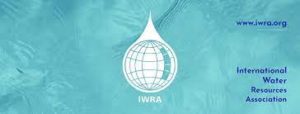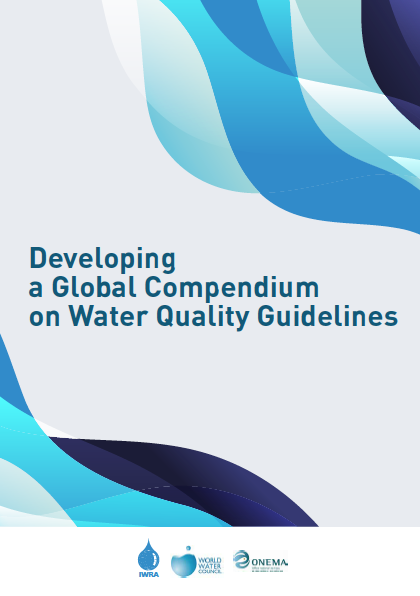なぜ水質に焦点を合わせるのですか?

水質は、効率的な水資源管理のための重要な考慮事項です。水質管理の改善は、水資源の研究、政策立案、ガバナンス、運用、管理へのよりバランスの取れた多面的なアプローチにとって不可欠であると見なされています。水の安全性を向上させるためには、水質管理を改善する必要があります。これは、水質の低下または水質の不適切な使用が、さまざまな用途に利用できる水の必要量を減らす原因となっている状況で特に明白です。同様に、社会経済的改善は、さまざまな開発経路に適した水質の十分な水へのアクセスに依存しています。
安全な飲料水と衛生設備へのアクセスは依然として重要な課題ですが、生態系、産業、エネルギー、農業などの他のセクターもますます圧力を受けています。したがって、利用可能な資源をよりインテリジェントに使用し、廃水の再利用の大きな可能性を最大限に活用し、さまざまな用途間で水質要件のバランスを取ることがますます重要になっています。世界の水質に関する私たちの現在の知識は依然として不十分です。既存の水質データは緊急に不足していますが、世界の水コミュニティが特定の問題と潜在的な解決策をより適切に特定するために不可欠です。
水質は、持続可能な開発目標(SDGs)で概説されているように、グローバルアジェンダを達成するための主要な課題の1つでもあります。2016年1月に立ち上げ、SDGsは、水は、独自に保持していることの重要性強調する目標6:への「すべての可用性と水の持続可能な管理と衛生を確保する」と水質のための唯一の目標:
6.3 2030年までに、汚染を減らし、投棄をなくし、有害な化学物質や物質の放出を最小限に抑え、未処理の廃水の割合を半分にし、リサイクルと安全な再利用を世界的に大幅に増やすことで、水質を改善します。
したがって、地域、国内、および国際レベルでの意思決定と管理プロセスをサポートするには、グローバルな水質評価フレームワークの開発と、タイムリーで信頼性の高いデータへのアクセスが緊急に必要です。その多様で複雑な性質のため、水質を改善するには、さまざまなセクターや利害関係者の間で全体論的なアプローチが必要です。より統合された持続可能な方法で水質政策を考案するために、管理フレームワークはこれらの変化するパラメータを説明するために柔軟で適応性がなければなりません。
水質ガイドラインに関するグローバル大要の作成
2012年の第6回世界水フォーラムに続いて、IWRAは、さまざまな用途の水質ガイドラインのグローバルリファレンスを作成するために選ばれました。その後、協会は世界水会議と協力して「水質ガイドラインに関する世界大要の作成」に関する報告書を発表しました。このレポートは、人間や生態系のさまざまな用途に適用される、流入水質に関する既存の推奨事項の例を収集して検証します。これは、既存の水質ガイドラインの例と分析を提供します。これらのケーススタディに基づいて、レポートは新しい視点を探求し、そのようなガイドラインのオンライン大要がどのように見えるかなど、トピックに関する将来の作業に関連する質問を提起します。
このレポートの主な目的は、水質ガイドラインの例へのアクセスを改善し、水質の需要と供給が適切で経済的な多部門の水資源管理にどのように貢献できるかについての理解を深めるためのオンライン大要の基礎を築くことです。
レポートの内容と出力は、水使用、地理的規模、および学際的な視点という3つの重複するドメインを中心にしています。水資源の性質上、あらゆる用途に対応する水質ガイドラインはほとんどありません。このレポートも例外ではありませんが、水使用の5つの主要なカテゴリ、つまり家庭、農業、産業、エネルギー、および生態系に焦点を当てています。これらの水使用からの国際的、地域的および国内のガイドラインを検討した後、レポートは、これらのガイドラインに基づく主要な調査結果と推奨事項、およびトピックでの将来の作業を促進するための提案されたデータベース構造を提示します。
IWRAは以前、「今後20年間で水質管理が直面する邪悪な問題は何か」に関する水質セッションを通じてこのレポートを発表しました。KIWW 2018で、エグゼクティブサマリーのドラフトがリリースされました。
特定の目的
IWRAは、2015年に大韓民国の大邱と慶北で開催された第7回世界水フォーラムで設定された実施ロードマップのテーマ3.3 「リッジからリーフまでの水質の確保」のテーマチャンピオンであり、水質のトピックリーダーとして継続しました。2018年にブラジルのブラジリアで開催された第8回世界水フォーラムのエコシステムテーマの下で。したがって、IWRAは、第7回フォーラムから以下の5つの目標に関する監視と報告の調整を支援し、特に目標の達成に取り組みました。 3.3.a.
- 3.3.a –水をよりスマートに使用して水の安全性に貢献する
この重点分野は、さまざまな規模(国、地域)のガイドラインを使用して、さまざまな用途(国内、農業、産業、エネルギー、および生態系)の水質に関するグローバルリファレンスを開発することを目的としています。 、および国際)、学際的な視点(技術的、経済的、制度的、法的、社会的、および環境的)で提示されます。IWRAは、専門家のネットワークとツールの提供を通じて、水のよりスマートな使用を促進するための特定の活動を設定しています。このネットワークは、主要なツールであるさまざまな用途の水質ガイドラインに関する大要の開発を監督する専門家のワーキンググループで構成されていました。 - 3.3.b –水質の監視と報告
この重点分野は、携帯電話の能力を利用することにより、水質データの理解とアクセスを提供しました。携帯電話の数はまもなく世界の総人口を超えるため、問題解決の水イニシアチブで意思決定者をサポートするためのデータの収集、分析、提示がこれまでになく簡単になりました。この重点分野は、携帯電話を介した水質の監視と報告を拡大することにより、これを達成するよう努めました。 - 3.3.c –水質を管理および管理するためのフレームワークの強化
この重点分野は、水質の効果的なガバナンスおよび管理のためのフレームワークの強化に加えて、既存の協力メカニズムおよびフレームワークを開発および使用しました。 - 3.3.d –持続可能な廃水管理と再利用
- この重点分野は、優れた廃水処理技術を収集して利用可能にし、ポリシーと金融商品をサポートし、ケーススタディのレッスンを分析することによってこれらを統合された廃水管理アプローチに組み込む方法を紹介することを目的としています。
- 3.3.e –沿岸および海洋の水質改善のための水源の管理
この重点分野は、水源から海への管理に関するアクションプラットフォームを利用して、水源から海への(尾根から岩礁への)管理のストックテイクを実施し、過去の教訓を考慮してさらに注意を払う必要のある側面は、国際社会がどのように動員され貢献できるかを特定します。
原文
Why focus on Water Quality?
Water quality is a crucial consideration for efficient water resources management. Improving water quality management is seen as essential for a more balanced and multidimensional approach to the research, policy-making, governance, operations and management of water resources. In order to improve water security, water quality management must improve. This is particularly evident in situations where water quality degradation or inappropriate use of water qualities is responsible for reducing the necessary quantity of water available for various uses. Similarly, socio-economic improvement is dependent on access to sufficient water of appropriate quality for its various development paths.
Access to safe drinking water and sanitation remains a significant challenge, whilst other sectors including ecosystems, industry, energy and agriculture are also experiencing increasing pressure. Thus, it is increasingly important to use available resources more intelligently, make the most of the massive potential for wastewater reuse, and balance the water quality requirements between different uses. Our current state of knowledge regarding global water quality remains poor. Existing water quality data is urgently lacking, but is essential for the global water community to better identify specific problems as well as potential solutions.
Water Quality is also one of the main challenges to achieving the global agenda as outlined by the Sustainable Development Goals (SDGs). Launched in January 2016, the SDGs highlight the importance that water holds with its own Goal 6 to: ‘Ensure availability and sustainable management of water and sanitation for all’ and a sole target for water quality:
6.3 By 2030, improve water quality by reducing pollution, eliminating dumping and minimizing release of hazardous chemicals and materials, halving the proportion of untreated wastewater and substantially increasing recycling and safe reuse globally.
Therefore, the development of a global water quality assessment framework as well as access to timely and reliable data is urgently needed to support decision-making and management processes at a local, national and international level. Due to its diverse and complex nature, a holistic approach among different sectors and stakeholders is required to improve water quality. Management frameworks must be flexible and adaptive to account for these changing parameters in order to devise water quality policies in a more integrated and sustainable way.
Developing a Global Compendium on Water Quality Guidelines
Following the 6th World Water Forum in 2012, IWRA was selected to develop a global reference of water quality guidelines for different uses. The Association then published a report on “Developing a Global Compendium on Water Quality Guidelines” in collaboration with the World Water Council. This report collects and examines examples of existing recommendations for influent water quality, as applied to various human and ecosystem uses. It provides examples and analysis of existing water quality guidelines. Building on these case studies, the report explores new perspectives, and raises pertinent questions for future work on the topic, including what an online compendium of such guidelines might look like.
This report’s primary objective is to lay the groundwork for an online compendium to improve access to examples of water quality guidelines and facilitate a better understanding of how water quality demand and supply can contribute to appropriate and economical multi-sectoral water resource management.
The contents and outputs of the report are oriented around three overlapping domains: water use, geographical scale, and multi-disciplinary perspectives. Due to the nature of the water resource, there are few water quality guidelines that address the full range of uses. This report is no exception, but focuses on five main categories of water use: domestic, agriculture, industry, energy, and ecosystems. After examining international, regional and national guidelines from these water uses, the report presents key findings and recommendations based on these guidelines, as well as a proposed database structure to encourage future work in the topic.
IWRA previously launched this report through a Water Quality session on “What Wicked Problems Face Water Quality Management over the Next 20 Years?” at KIWW 2018 with the release of its draft Executive Summary.
Specific Objectives
IWRA was the Thematic Champion for Theme 3.3 “Ensuring Water Quality from Ridge to Reef” in the Implementation Roadmap set out for the 7th World Water Forum in Daegu & Gyeongbuk, Republic of Korea in 2015, and continued as the topic lead for water quality under the Ecosystems Theme for the 8th World Water Forum in Brasilia, Brazil, in 2018. IWRA, therefore, has supported the coordination of monitoring and reporting around the 5 goals below from the 7th Forum, and specifically worked on the delivery of goal 3.3.a.
- 3.3.a – Using water smarter to contribute to the water security
This focus area aimed to develop a global reference on Water Quality for the different uses (domestic, agriculture, industry, energy, and ecosystems) with guidelines on different scales (national, regional, and international), presented with multi-disciplinary perspectives (technical, economic, institutional, legal, social, and environmental). IWRA sets specific activities to promote the smarter use of water through the provision of expert networks and tools. The network comprised a working group of experts overseeing the development of the main tool, a Compendium on Water Quality Guidelines for Different Uses. - 3.3.b – Monitoring and Reporting of Water Quality
This area of focus provided understanding and access to Water-Quality-data by utilizing the power of mobile phones. Being that the number of mobile phones will soon exceed the world’s total population, it has never before been easier to collect, analyse, and present data to support decision-makers in problem-solving water initiatives. This focus area strived to achieve this by up scaling water quality monitoring and reporting through mobile phones. - 3.3.c – Strengthening Frameworks for Governing and Managing Water Quality
This area of focus developed and used existing cooperation mechanisms and frameworks in addition to strengthening frameworks for the effective governance and management of water quality. - 3.3.d – Sustainable Wastewater Management and Reuse
- This area of focus aimed to gather and make available good wastewater treatment technologies, support policies and financial instruments, and showcase how these can be incorporated within an integrated wastewater management approach by analysing case study lessons.
- 3.3.e – Managing sources for coastal and marine water quality improvements
This area of focus made use of the Action Platform on Source to Sea Management to undertake a stock take on source-to-sea (ridge-to-reef) management to determine the aspects in need of increased attention considering past lessons, identify how the international community can be mobilized and contribute.
